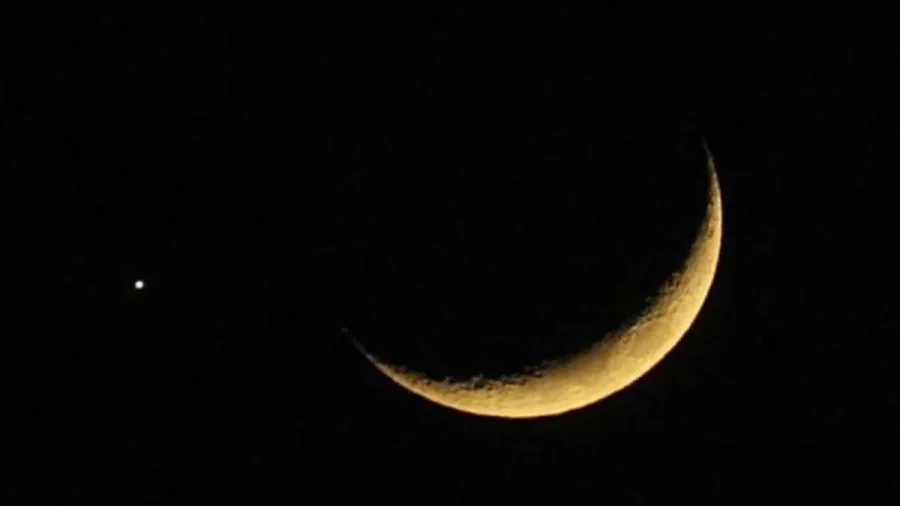The Abu Dhabi-based International Astronomy Centre expects Eid Al Fitr (1444 AH) to fall on Saturday, April 22, one day later than the previous prediction. The astronomical body said its prediction is based on astronomical information and that the exact date of the Eid will only be confirmed by the concerned authorities based on the sighting of the new moon.
On Thursday, April 20, 2023, the Islamic community will search for the crescent of Shawwal, but as per the Centre’s observation, it will not be visible to the naked eye from any location in the Arab and Islamic world.
In a statement, it said, “Seeing the crescent on Thursday is not possible with a telescope in most countries of the Arab and Islamic world, except for parts of West Africa starting from Libya. But spotting remains very difficult and requires a precise telescope, professional monitoring and exceptional weather conditions. The occurrence of all these factors is rare. Therefore the crescent is not expected to be seen even using a telescope from anywhere in the Arab world unless the mentioned circumstances.” Therefore, as the sighting of the crescent is a prerequisite for the start of the month, Eid Al Fitr is now anticipated to occur on Saturday, April 22. But the International Astronomy Centre has urged people to report any sightings of the crescent from Thursday.
As for countries that require correct sighting with the naked eye only or correct local vision with a telescope, they are expected to continue observe fasting to complete 30 days, and therefore Eid Al Fitr will be on Saturday for them, the centre added.
The UAE’s Ministry of Human Resources and Emiratisation (MoHRE) announced the official Eid Al Fitr holiday from Ramadan 29 to Shawwal 3. If the Moon is not spotted on Thursday, April 20, and April 22 will be the start of Eid, UAE residents will enjoy a five-day weekend. The UAE’s moon sighting committee will convene to investigate the sighting and declare the exact Eid date.—INP










